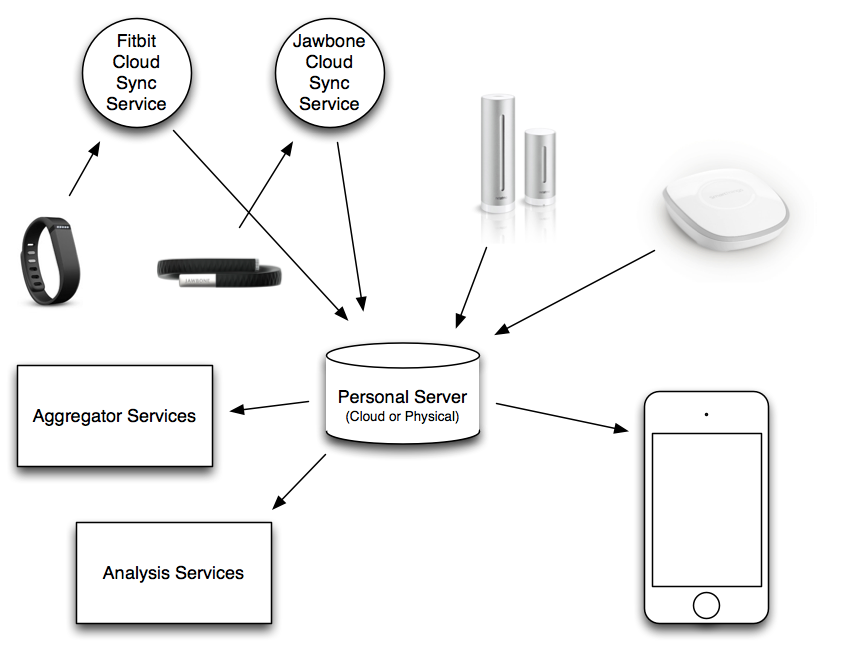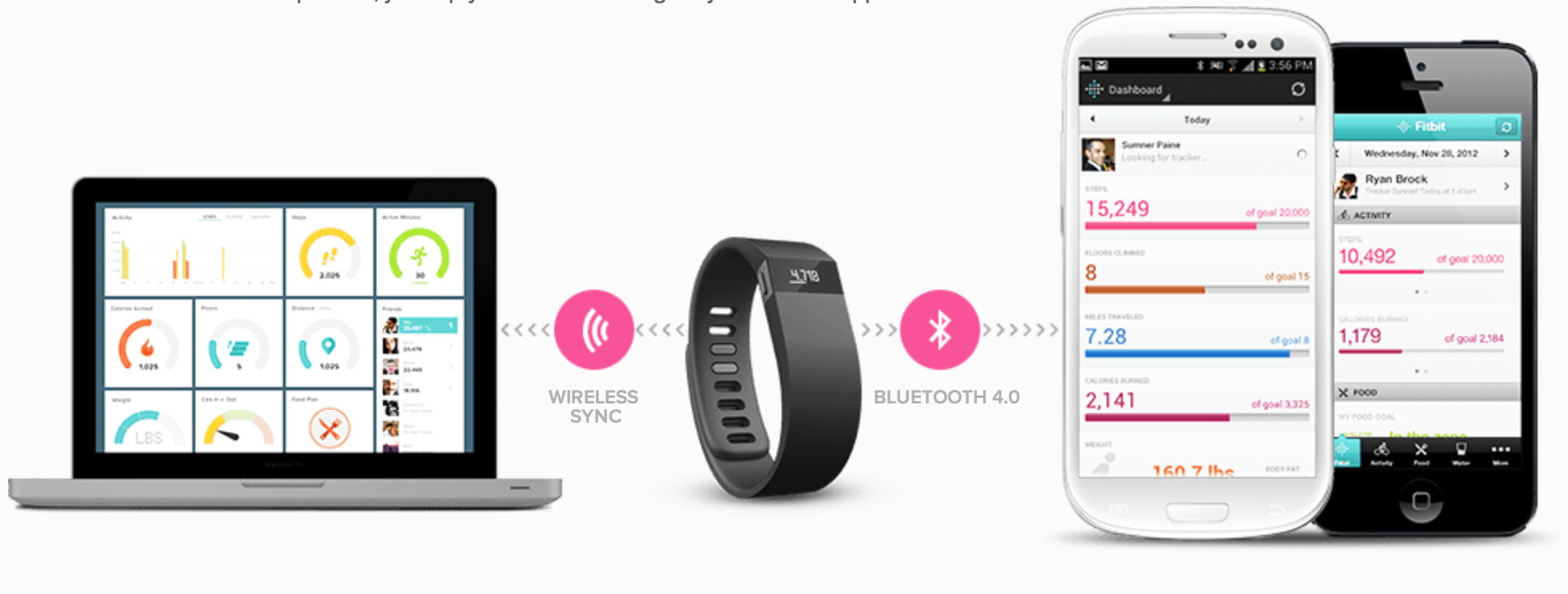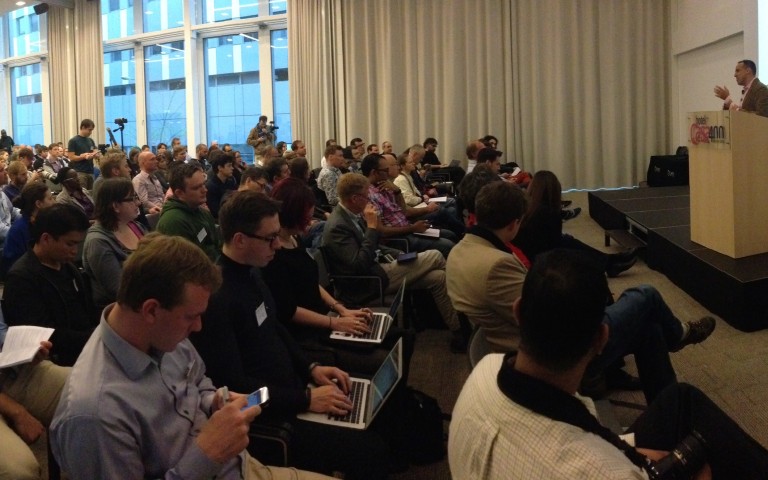The Future of Quantified Self Devices
There is no doubt that the quantified self market is expanding at a rapid speed, with an estimation of more than 373 million smart watches to be shipped by 2020. However, while wearable technology is increasingly gathering interest among us users, there is still much room for improvement. According to Aaron Parecki, the current way these quantified self devices are built and marketed are not optimal for users. The current model – where every device has its own app and its own social network requires users to completely buy into the whole eco-network of each company, without the ability to sync data from outside sources. While this model offers a more integrated experience for the product, it leaves users with yet another platform to manage, and the inability to fit all the data gathered from different sources together to form a complete understanding of oneself. This inability to optimize all the data that we get can be akin to pieces of a jigsaw puzzle – having lots of information but not being to able to make sense of these data and to form a complete picture – thus leading to imperfect information. As such, he came up with an ideal Quantified Self Eco-System ( refer to the above picture), where the device manufacturers are separated from the app builders. By doing so, it then allows us to better manage our data. It also increases the management and increases the security of our data. For more explanation of this new eco-system, hop on to this really great article.
Read more: The Future of Quantified Self Devices
Fitbit Force – The best all round activity tracker
This week, we were really excited to learn about the new Fitbit Force, which is ready to ship. Priced at an affordable USD$129.95, it was described by CNET as the best all-around fitness tracker, which is an honour given the number of self tracking gadgets out in the market. The common consensus among the different reviews is a seamless and great user experience of the Fitbit Force. Reviews described the Fitbit Force as being light and comfortable enough to wear over a period of time, with an impressive battery life of 7-10 days. The Force also takes advantage of Fitbit’s deep analytical tools and product ecosystem to paint a more complete picture of the user’s health and fitness lifestyle. Syncing the data has also been made easier with wireless and bluetooth sync, removing any hassle of dealing with wires. We really liked what we saw and can’t wait to try out ourselves. For more information on the benefits of the Fitbit Force, check this user review out!
Read more: A fitness tracker tour de force
Having a pot belly makes you nearly FOUR times more likely to suffer from memory loss
Many past researches have shown that smoking, lack of sleep, drinking and taking drugs can increase the risk of dementia and memory loss. This might be reassuring to some of us who do not do any of these activities. However, recent researches have shown that an unhealthy lifestyle – unhealthy eating and exercising habits can also lead to memory loss. This research revealed that people with alot of fat around their middles are three and a half times more likely to develop memory loss and dementia in old age. This is because people with a lot of abdominal fat have lower levels of the protein that also controls how the liver metabolises fat. Called PPARalpha, it controls fat metabolism in the liver, but it also resides in the brain’s memory centre – the hippocampus – and controls memory and learning.When people are overweight, they initially just have depleted PPARalpha levels in their livers but eventually in their whole bodies, including their brains.
Read more: Having a pot belly makes you nearly FOUR times more likely to suffer from memory loss
A Father-Daughter Bond – Perspective on time lapse
On a lighter note, check out this video of a dad (Steven Addis) who visited the exact same spot in New York City every year for 15 years to take a family picture with his daughter. Considered as a time-lapse project, we like his perspective on time-lapse and capturing pictures as memories. In this video, he spoke about the how our perspectives change even while taking the same photos. And how photos allow us to freeze time and consequently reflect how we change from year to year. Check this heartwarming video out!
Read more: Six great moments in time-lapse photography
If you enjoyed this post, you can also subscribe to our press releases! PS – Have you read about our name change, funding and our official shipping date? Read our CEO letter here





